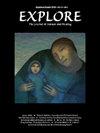Auricular acupressure for chemotherapy-related insomnia in cancer patients: A systematic review and meta-analysis
IF 2.2
4区 医学
Q3 INTEGRATIVE & COMPLEMENTARY MEDICINE
引用次数: 0
Abstract
Background
Cancer patients undergoing chemotherapy are prone to experiencing sleep disturbances. Research has shown that auricular acupressure may be beneficial in relieving these symptoms, but high-quality evidence is lacking. This study was designed to systematically evaluate the efficacy of auricular acupressure for relieving chemotherapy-related insomnia.
Methods
This review was reported in accordance with the PRISMA framework. A total of 4 English databases (PubMed, Embase, Web of Science, The Cochrane Library) and 4 Chinese databases (CNKI, Wanfang, VIP, CBM) were searched from inception to October 31, 2024 to identify randomized clinical trials (RCTs) examining the use of auricular acupressure for the treatment of chemotherapy-related insomnia. The methods recommended by the Cochrane collaboration group were applied to evaluate the quality of the methodology. Cochrane Review Manager 5.4 was used for the meta-analysis.
Results
This meta-analysis included 1073 patients from 14 randomized controlled trials. We mainly compared auricular acupressure with routine nursing or sham auricular acupressure. The results showed that auricular acupressure could alleviate chemotherapy-related insomnia(MD(PSQI)=-3.68, 95 %CI [-4.74,-2.62], P < 0.00001), anxiety(SMD=-1.07, 95 %CI [-1.57,-0.57], P < 0.0001), depression (SMD=-1.14, 95 %CI [-1.78–0.50], P = 0.0005<0.05) and fatigue (SMD = -1.14, 95 % CI [-1.78 to 0.50], P = 0.0005) more effectively than sham auricular acupressure and routine nursing.
Conclusion
This meta-analysis found that auricular acupressure can relieve chemotherapy-related insomnia, anxiety, depression and fatigue, and improve the quality of life of patients. However, the current relevant literature has low quality and is highly heterogeneous, which reduces the credibility of the research results. Therefore, more rigorously designed randomized controlled trials are needed to verify these conclusions.
耳穴按压治疗癌症患者化疗相关失眠:系统回顾和荟萃分析
背景:接受化疗的癌症患者容易出现睡眠障碍。研究表明,耳穴按压可能有助于缓解这些症状,但缺乏高质量的证据。本研究旨在系统评价耳穴按压缓解化疗相关性失眠的疗效。方法按照PRISMA框架进行综述。我们检索了4个英文数据库(PubMed、Embase、Web of Science、The Cochrane Library)和4个中文数据库(CNKI、万方、VIP、CBM),检索了从成立到2024年10月31日的随机临床试验(RCTs),以确定使用耳穴按压治疗化疗相关性失眠的疗效。采用Cochrane协作组推荐的方法评价方法的质量。采用Cochrane Review Manager 5.4进行meta分析。结果本荟萃分析纳入了来自14项随机对照试验的1073例患者。我们主要将耳穴按压与常规护理或假耳穴按压进行比较。结果显示,耳穴按压可缓解化疗相关性失眠(MD(PSQI)=-3.68, 95% CI [-4.74,-2.62], P <;0.00001)、焦虑(SMD = -1.07, 95% CI [-1.57, -0.57], P & lt;0.0001)、抑郁(SMD=-1.14, 95% CI [-1.78 ~ 0.50], P = 0.0005<0.05)和疲劳(SMD=-1.14, 95% CI [-1.78 ~ 0.50], P = 0.0005)比假耳穴按压和常规护理更有效。结论本荟萃分析发现,耳穴按压可缓解化疗相关的失眠、焦虑、抑郁和疲劳,改善患者的生活质量。然而,目前的相关文献质量低,异质性强,降低了研究结果的可信度。因此,需要更严格设计的随机对照试验来验证这些结论。
本文章由计算机程序翻译,如有差异,请以英文原文为准。
求助全文
约1分钟内获得全文
求助全文
来源期刊

Explore-The Journal of Science and Healing
医学-全科医学与补充医学
CiteScore
3.00
自引率
8.30%
发文量
179
审稿时长
25 days
期刊介绍:
EXPLORE: The Journal of Science & Healing addresses the scientific principles behind, and applications of, evidence-based healing practices from a wide variety of sources, including conventional, alternative, and cross-cultural medicine. It is an interdisciplinary journal that explores the healing arts, consciousness, spirituality, eco-environmental issues, and basic science as all these fields relate to health.
 求助内容:
求助内容: 应助结果提醒方式:
应助结果提醒方式:


